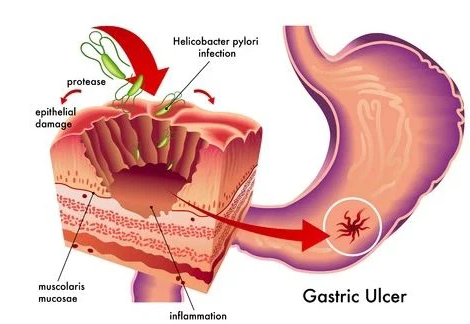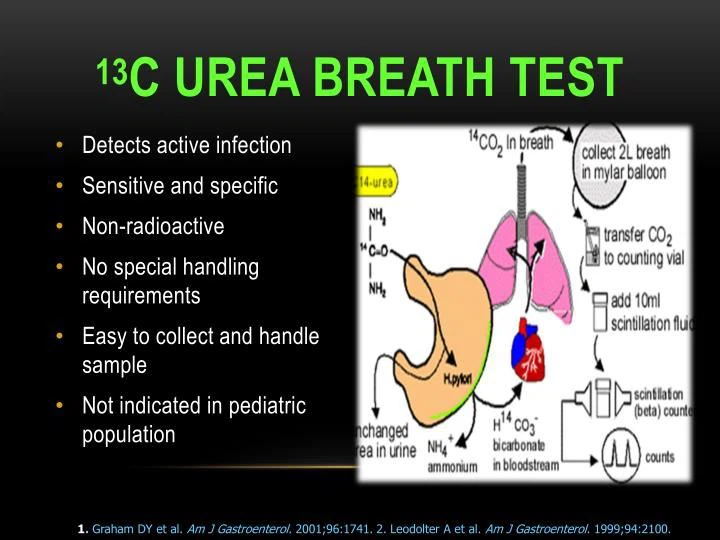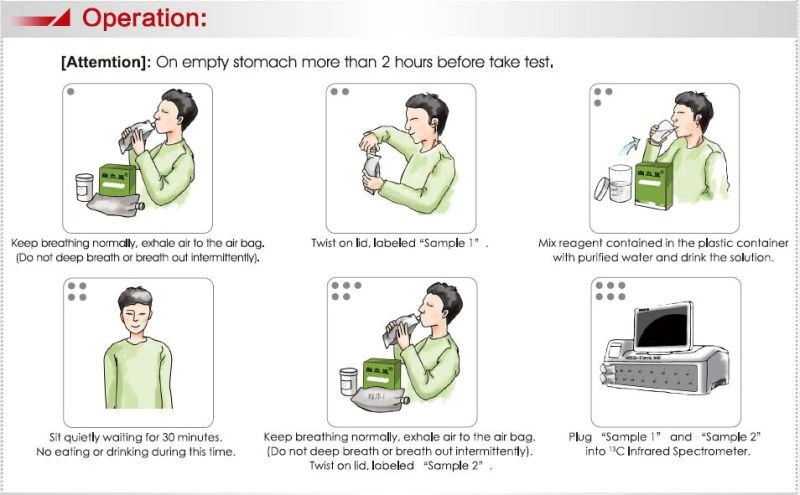
Helicobacter pylori (H. pylori) is a type of bacteria. These germs can enter your body and live in your digestive tract. After many years, they can cause sores, called ulcers, in the lining of your stomach or the upper part of your small intestine. For some people, an infection can lead to stomach cancer.
H. pylori enters your body, it attacks the lining of your stomach, which usually protects you from the acid your body uses to digest food. Once the bacteria have done enough damage, acid can get through the lining, which leads to ulcers. These may bleed, cause infections, or keep food from moving through your digestive tract.
You can get H. pylori from food, water, or utensils. It’s more common in countries or communities that lack clean water or good sewage systems. You can also pick up the bacteria through contact with the saliva or other body fluids of infected people.
SYMPTOMS:

DIAGNOSIS:
The 13c urea breath test is a rapid diagnostic procedure used to identify infections by Helicobacter pylori, a spiral bacterium implicated in gastritis, gastric ulcer, and peptic ulcer disease. It is based upon the ability of H. pylori to convert urea to ammonia and carbon dioxide. Urea breath tests are recommended in leading society guidelines as a preferred non-invasive choice for detecting H. pylori before and after treatment.

